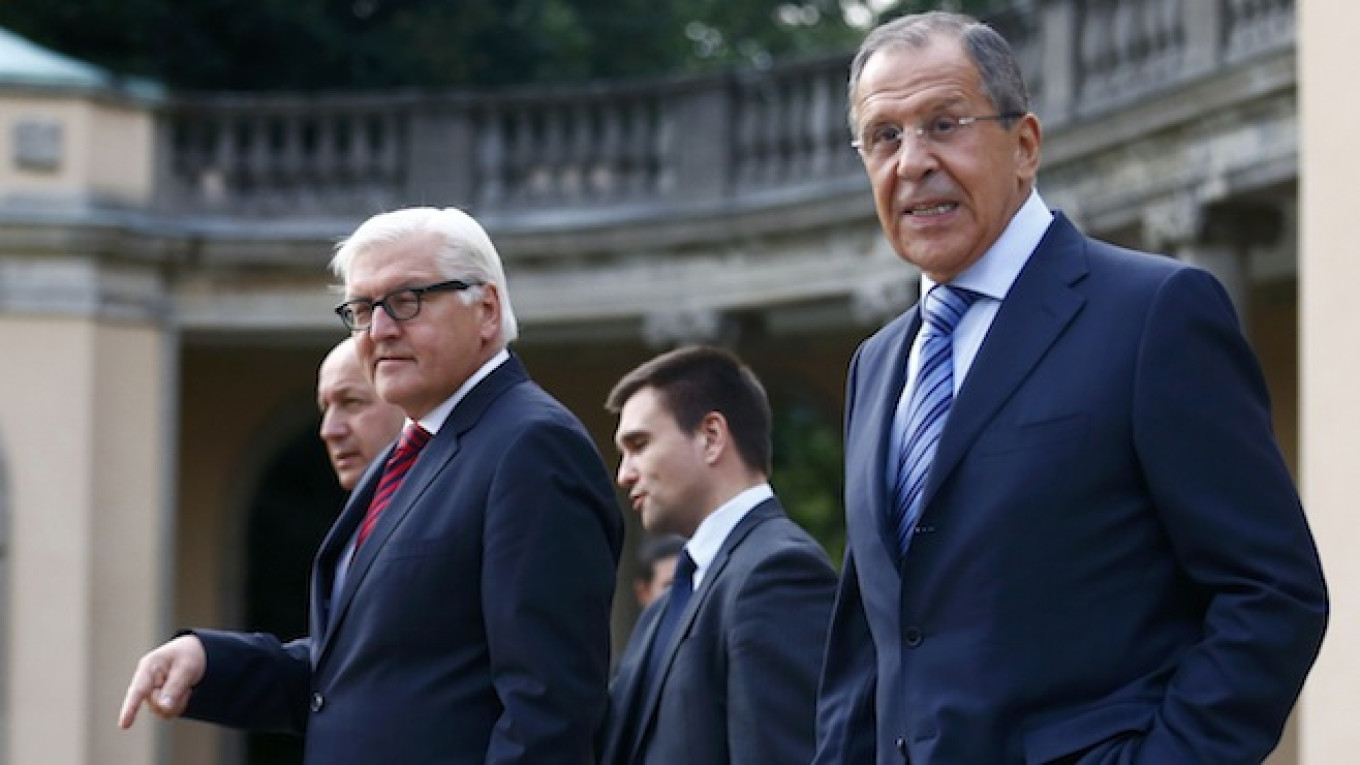Russia on Monday said all objections to it sending a humanitarian convoy to Ukraine had been resolved but said no progress had been made in Berlin talks toward a ceasefire between government and rebel forces in the east of the country.
Following the talks between Russia, Germany, France and Ukraine on Sunday, Russian Foreign Minister Sergei Lavrov said "finally, all questions have been resolved ... related to the Russian initiative to send 300 trucks with humanitarian aid."
"Everything has been agreed with Ukraine and the International Committee of the Red Cross," he said at a news conference in Berlin.
Russia and Ukraine have been at loggerheads over a convoy of 280 Russian trucks carrying water, food and medicine.
It has been parked for days in Russia near the border amid objections from Kiev, which believes the convoy could be a Trojan Horse for Russia to get weapons to the rebels — a notion that Moscow has dismissed as absurd.
Lavrov described the situation in east Ukraine as a "humanitarian catastrophe" and said a ceasefire was needed as civilians had been under bombardment from the Ukrainian advance.
"We are not able to report on positive results on reaching a ceasefire and on (a start to) the political process (to resolve the conflict)," he told journalists.
The four-month-old conflict in Ukraine's Russian-speaking east has reached a critical phase, with Kiev and Western governments watching nervously to see if Russia will use troops massed along its border to intervene in support of the increasingly besieged pro-Russian rebels.
Russian has repeatedly said it has no plans to invade and Lavrov again denied Moscow is helping the rebels. He defended the military buildup on Russia's border, saying: "We must be alert ... when several kilometers from our border a real war is underway."
See also:
Germany Says Leaders to Discuss How to Proceed With Ukraine Crisis Talks
A Message from The Moscow Times:
Dear readers,
We are facing unprecedented challenges. Russia's Prosecutor General's Office has designated The Moscow Times as an "undesirable" organization, criminalizing our work and putting our staff at risk of prosecution. This follows our earlier unjust labeling as a "foreign agent."
These actions are direct attempts to silence independent journalism in Russia. The authorities claim our work "discredits the decisions of the Russian leadership." We see things differently: we strive to provide accurate, unbiased reporting on Russia.
We, the journalists of The Moscow Times, refuse to be silenced. But to continue our work, we need your help.
Your support, no matter how small, makes a world of difference. If you can, please support us monthly starting from just $2. It's quick to set up, and every contribution makes a significant impact.
By supporting The Moscow Times, you're defending open, independent journalism in the face of repression. Thank you for standing with us.
Remind me later.


